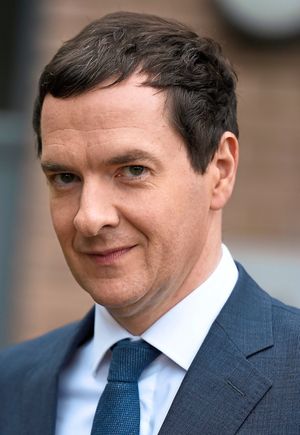Could Corbyn be PM? asks Chris Moncrieff
n The rapturous reception received by Jeremy Corbyn at the Glastonbury Festival – it seemed to be almost on the scale of Beatlemania – must have caused Theresa May to shudder in her leopard-print shoes.

And his assertion that Labour was ready for another general election at any time, drew even more excitement from the festival fans. There is little doubt Corbyn is flavour of the month with Britain’s youthful section of the electorate, which he tapped so successfully in the recent election.
No British party leader had previously gone to Corbyn’s lengths to encourage young people to get themselves to the polling stations. This was largely because young people have, in the past, seemed reluctant to bother to vote and so candidates did not bother to spend time and money trying to woo them.
But Corbyn showed it could be done – and although he lost the election, without the votes of teenagers, Labour’s result would have been far less impressive.
Meanwhile the Tories’ badly-managed and frankly incompetent campaign was not helped by the fact they succeeded in committing the elementary error of enraging the pensioners, who have always been regarded as the people most likely to vote on polling day.
This was certainly a ‘Theresa in Blunderland’ election. Now the Tories must sort themselves out and, in future, not waste vast sums of money on outside so-called experts telling them how to do it with duff advice. Fortunately for them, even though for Corbyn another election cannot come soon enough, that is the last thing the electorate wants.
n For how long can Theresa May survive as leader of the Conservative Party? She has so far been given a reluctant thumbs-up by Tories at Westminster, but with the party still reeling over losing its overall majority in the House of Commons, her tenancy at Number 10 could end abruptly, sooner rather than later. The former Tory Chancellor, George Osborne, now editor of the London Evening Standard newspaper, has dramatically described her as a ‘dead woman walking’ and she is certainly far less secure in her post than she was three months ago.
But who would want to succeed her at this point, with the party in such a fragile and sometimes quarrelsome state?
There is already widespread speculation about her successor – not simply among the so-called chattering classes, but among MPs themselves. The prominent Tory backbencher Sir Desmond Swayne is already publicly rooting for David Davis, the Brexit Secretary, to take over the reins.
Davis has himself said it is ‘self-indulgent nonsense’ and to talk about a successor to Mrs May and that people should get on with the day job. Meanwhile, that dullest of dull dogs Chancellor Philip ‘Spreadsheet’ Hammond is also being touted as a possible successor.
And surprisingly, Foreign Secretary Boris Johnson appears to be slipping in the popularity stakes. Yet, despite his fierce denials, many people suspect he is gagging for the job.
Despite all this, the Conservatives, who were hoping for a landslide victory on June 8 and finished up without an overall majority, would be wisest to get their own house in order before indulging in an unnecessary leadership battle, which would only add to their internal turmoil and make their already unenviable position, even worse.
n There could still be a quick election if the Government's watered-down and delayed Queen's Speech is voted down later this week. Of course, Corbyn could be invited to try to form a minority administration, but, if anything, he would be in an even more vulnerable position than Theresa May is today. The feeling is, however, that the DUP will help to get the Queen's Speech through the Commons – but it will still be a very tight vote.
A defeat for the Speech could see May unceremoniously propelled to the backbenches. It would mean the Government’s programme for the next two years would simply vanish before their very eyes. Rarely has Parliament been in such a fragile state.
n The only thing surprising about the recent cyber attack on Parliament is that it hasn't happened earlier. The contents – sometimes juicy – of MPs' emails plainly contain rich pickings for the cyber criminal fraternity.
Let us hope the experts foil it and make the system at Westminster as secure as possible.
The trouble is, we are all, in a sense, vulnerable because the criminals often manage to keep one step ahead of the experts when they attempt their nefarious practices.
As with illicit love letters, MPs should be careful what they commit to print.
n A 'survival guide' for new MPs has been prepared by The House, Parliament's own magazine.
It includes an item on how to handle television interviews.
“Make sure you have done your homework. Believe me, it will not just be all right on the night.”





